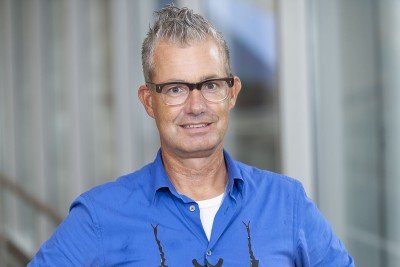
Some children’s cancers and noncancerous diseases of the blood can only be cured using a bone marrow transplant, also known as a stem cell transplant. The goal here is to replace the child’s unhealthy cells with healthy ones. It’s a complicated process, so it’s best handled by experts at a center that has done many of these procedures and offers exceptional patient care. That is exactly what you’ll find when you come to the Pediatric Transplant and Cellular Therapy Service at MSK Kids. We are one of the world’s oldest and most well-established stem cell transplant and cellular therapy programs.
Our goal is to get children and young adults back to leading full, healthy lives after transplantation. We tailor treatment to your child’s needs to achieve the best possible chance for a cure. Our transplant doctors and researchers have developed innovative ways to reduce the risk of complications after transplant and to make transplantation an option for young patients without a matched donor. We also offer advanced cellular therapies that harness the power of the immune system to fight disease, as well as and state-of-the-art gene therapies to replace cells that don’t work properly.
What is a bone marrow transplant?
A bone marrow transplant, also known as a stem cell transplant, is a treatment to replace unhealthy bone marrow with healthy stem cells that will make the bone marrow healthy again. Stem cells are immature cells that mature to become cells with dedicated functions, such as white blood cells to fight infection, red blood cells to carry oxygen, and platelets to prevent excessive bleeding. The stem cells used to replace the unhealthy bone marrow cells may come from the bone marrow, the bloodstream (these are called “peripheral blood stem cells”), or umbilical cord blood.
A Team of Transplant Experts for Your Child
At MSK Kids, children and young adults receive care from a highly experienced team led by transplant doctors who work closely with other MSK Kids specialists. Our robust team includes cancer doctors, geneticists, transplant coordinators, pharmacists, nurse practitioners, and physician assistants. And at MSK Kids, treatment goes beyond just medical care. We have nurses; social workers; psychologists; integrative medicine experts; teachers; and physical, occupational, and speech therapists ready to assist you and your family. We are all here to support your child’s physical, emotional, social, and academic development, as well as to help you and your family through the entire transplant process. As we look for parallels between our young patients and their grown-up counterparts, we also work closely with experts in the Adult Bone Marrow Transplant Service at MSK.
What conditions does a bone marrow transplant treat?
We typically use stem cell transplantation to treat blood diseases that are not responding well to other therapies, as well as disorders for which transplantation is the only cure. Examples of diseases we treat with stem cell transplantation include:
- leukemia
- certain types of lymphoma
- myelodysplastic syndrome, which can lead to acute leukemia
- certain solid tumors of the brain, eye, kidney, as well as germ cell tumors
- inherited diseases that cause bone marrow failure, such as Fanconi anemia, Shwachman-Diamond syndrome, and dyskeratosis congenita
- acquired bone marrow failure syndromes, such as aplastic anemia and paroxysmal nocturnal hemoglobinuria
- certain genetic deficiencies of the immune system, including severe combined immunodeficiency, Wiskott-Aldrich syndrome, Omenn syndrome, CD40 ligand deficiency, and GATA-2 deficiency
- disorders of red blood cells, such as sickle cell disease or thalassemia
- disorders of white blood cells, such as severe congenital neutropenia, chronic granulomatous disease, and leukocyte adhesion deficiency
- disorders of platelets, such as amegakaryocytic congenital thrombocytopenia
- genetic disorders that affect metabolism, such as adrenoleukodystrophy and osteopetrosis
- hemophagocytic lymphohistiocytosis
- genetic autoimmune diseases, such as immunodysregulation polyendocrinopathy enteropathy X-linked or IPEX syndrome
Sometimes a stem cell transplant is the best or only potentially curative treatment for a disease. Sometimes it is used when other treatments don’t work. Your child’s care team will let you know if a stem cell transplant is a good option for their care, and if so, what to expect from start to finish.
Types of Bone Marrow Transplants
Based on your child’s illness and prior treatments, we will choose the most appropriate transplant approach. No matter what your child’s needs are, we have something to offer.
- autologous transplant: For this procedure, we collect your child’s own healthy stem cells before the transplant, multiply them in a lab, and then give them back to them so the body can rebuild its own blood and immune systems.
- allogeneic transplant: Here, we collect stem cells from another person and give them to your child. The best donors have an HLA type that is well-matched to your child’s. HLA is a classification system for determining genetic similarities between blood cells from the donor and those of the recipient. The best donors are siblings, parents, other family members, or matched unrelated volunteer donors. MSK Kids has special expertise in transplanting stem cells from mismatched unrelated donors.
- cord blood transplant: This transplant is also an allogeneic transplant, but the stem cells come from the umbilical cord and placenta of a healthy newborn. Cord blood transplants can be a good choice for children who don’t have a closely matched donor and for children with certain disorders. MSK’s cord blood transplant program is one of the largest in the world. Learn more about cord blood transplantation.
Expertise in Graft-Versus-Host-Disease (GVHD)
GVHD is a complication that can occur after a bone marrow transplant. It happens when donor cells attack the recipient’s tissue. At MSK’s GVHD Clinic, experts in transplant, skin, lung health, digestive tract, rehabilitation medicine, dentistry, and more provide specialized, coordinated care to children and young adults who develop this complication. We offer the most up-to-date therapies for patients as well as opportunities to participate in clinical trials. We see patients in person and by telehealth, and we also provide consultation to patients who did not receive transplants at MSK Kids.


